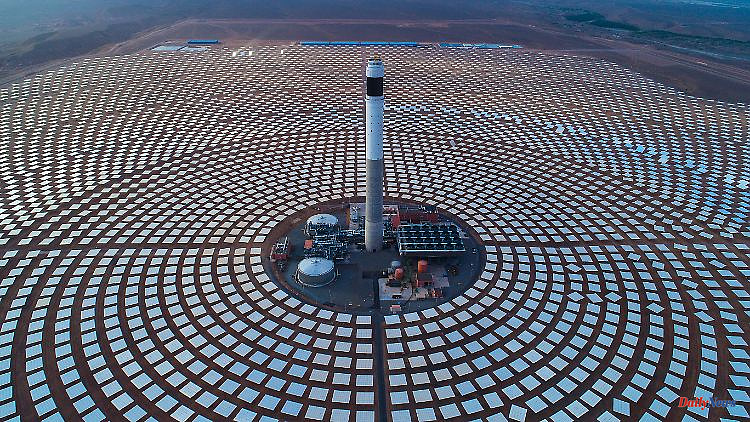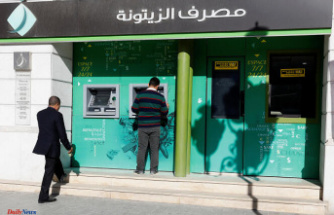The German government is emphasizing its determination to tackle CO2 reduction projects after the end of the climate summit in Egypt. This should enable the import of green electricity from North Africa, says the Ministry of Economic Affairs. The first is a planned power connection to Morocco.
After the UN climate conference in Sharm el Sheikh, the German government promised to take decisive measures to help ensure compliance with the 1.5 degree limit. "The mandate from the Paris climate agreement is all the more relevant now: to work persistently in specific projects to actually curb global warming," emphasized Federal Economics and Climate Protection Minister Robert Habeck in a joint statement with the other ministers responsible for climate policy. The focus is on "promoting the joint move away from coal, oil and gas".
Green politician Habeck campaigned for a "sustainable, socially just, global energy transition and the decarbonization of industry". The federal government has already made "concrete progress". Together with other EU countries, Germany wants to set up a power connection to sunny Morocco over the next two years.
"We are removing obstacles to the transmission of electricity from Africa and the Near and Middle East," stressed Habeck. The development of green hydrogen networks is also being promoted, for example through the new hydrogen fund, which supports the global South in climate-friendly energy investments.
Federal Foreign Minister Annalena Baerbock from the Greens affirmed that the world climate conference was over, "but the work to reduce emissions, expand solar and wind and for more solidarity with the most vulnerable continues". Federal Development Minister Svenja Schulze from the SPD promised that Germany would "play its fair share in dealing with climate damage".
When it comes to the specific design of the fund set up for this purpose, she will insist "that everyone who helped cause the climate disaster must pay in," explained Schulze. In addition to the EU and the USA, this also included China. In addition, Germany wants to continue working towards a reform of the World Bank and other development banks so that they do "more for climate protection".
The World Climate Conference ended on Sunday with the setting of a fund to compensate for climate-related damage. However, it was not possible to anchor a significant increase in climate protection efforts in the final declaration in order to keep the goal of limiting global warming to 1.5 degrees compared to the pre-industrial level within reach.
In the meantime, the world climate conference was on the verge of failure. In the end, however, the EU was able to push through at least a few improvements. "There is light and shadow in the result," said Baerbock, assessing the outcome of the conference. Due to the blockade attitude of some states, the gap to achieve the 1.5 degree target is "still wide open". However, the EU "acted as one" in Sharm el Sheikh.
Federal Environment Minister Steffi Lemke also criticized the result of the COP27 as falling "below what is necessary". "It's extremely bitter," said the Green politician. "A difficult climate conference has come to an end, with a result that cannot really make us satisfied," Habeck summed up. But the "consistent stance of the EU and the prudent German conduct of negotiations" prevented worse from happening.












